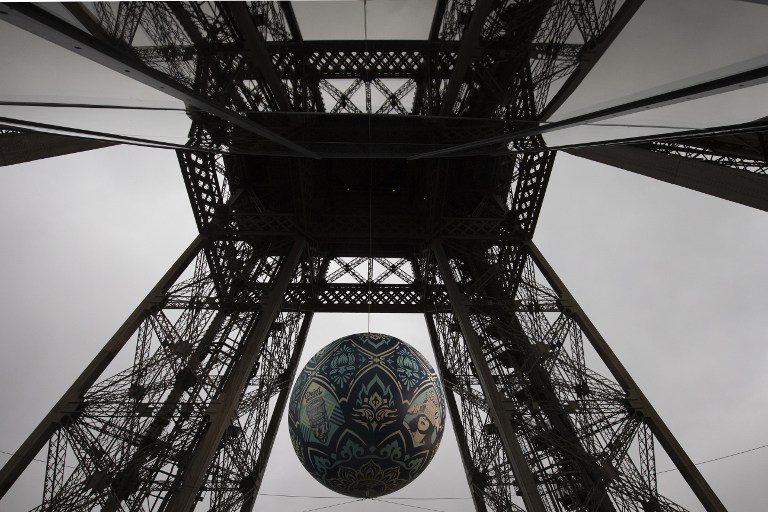SUMMARY
This is AI generated summarization, which may have errors. For context, always refer to the full article.

PARIS, France – Developing countries could face a bill of $790 billion (741 billion euros) per year by 2050 for adapting to climate change, anti-poverty agency Oxfam said Wednesday, November 25.
Carbon-curbing pledges which form the cornerstone of a climate rescue pact to be sealed at a UN summit opening in Paris next week are insufficient, it said in a report.
Current commitments from some 170 nations put the world on track to warm by 3ºC (5.4ºF) over mid-19th century levels – a full 1ºC higher than the United Nations target.
Unless much more is done, developing nations will end up spending about 50% more on climate adaptation by mid-century than they would under a 2ºC scenario, the report said.
“World leaders need to step up. We need further cuts to emissions and more climate funding,” Oxfam Executive Director Winnie Byanyima said in a statement.
“The human cost of climate change must be central to discussions in Paris so we get a better climate deal for poor people,” she said.
In addition to costly impacts like flooding, droughts and extreme weather, developing nations’ economies stand to lose $1.7 trillion annually by 2050 if warming breaches 3ºC, the report says.
A key test for Paris will be to include a mechanism in the pact to periodically review and improve the pledges until the 2ºC goal comes into view.
Countries do not agree how often reviews should be done, or whether there should be an obligation to automatically ramp up efforts.
Money will be a make-or-break issue at the talks. Rich nations have pledged to muster $100 billion per year in financial support for poor countries from 2020.
A UN-commissioned estimate showed international climate finance amounted to $62 billion in 2014.
Developing nations want assurances that the flow of funding will be reliable and recession-proof.
And they want assurances that money will go not only towards “mitigation” programs allowing their shift away from climate-harming fossil fuels, but also for shoring up their defenses against climate impacts – “adaptation” in climate jargon. – Rappler.com
Add a comment
How does this make you feel?
![[In This Economy] A counter-rejoinder in the economic charter change debate](https://www.rappler.com/tachyon/2024/04/TL-counter-rejoinder-apr-20-2024.jpg?resize=257%2C257&crop=267px%2C0px%2C720px%2C720px)
![[Vantage Point] Joey Salceda says 8% GDP growth attainable](https://www.rappler.com/tachyon/2024/04/tl-salceda-gdp-growth-04192024.jpg?resize=257%2C257&crop_strategy=attention)
![[ANALYSIS] A new advocacy in race to financial literacy](https://www.rappler.com/tachyon/2024/04/advocacy-race-financial-literacy-April-19-2024.jpg?resize=257%2C257&crop_strategy=attention)


There are no comments yet. Add your comment to start the conversation.